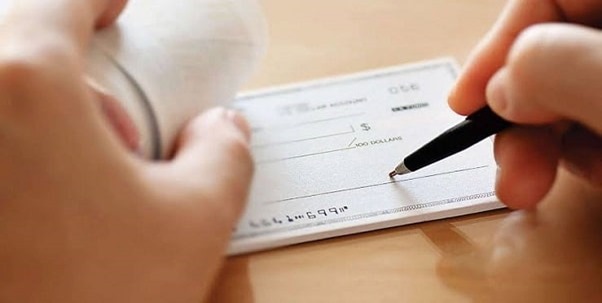The Supreme Court noted that courts have the authority to use Section 73 of the Indian Evidence Act, 1872 (IEA) to compare the signatures on checks with certified copies of specimen signatures in cases involving “cheque bounce.”
The High Court’s decision to deny a request to provide more evidence and consult a handwriting expert was upheld by the Court in dismissing an appeal.
The Negotiable Instruments Act (NI Act), 1881 (NI Act), Section 118(e) of which the Court pointed out, presumes that the endorsements on the negotiable document are authentic and appear in the correct order. In order to refute this assumption, the accused is required to provide proof.
Thus, the Bench made up of Justices BR Gavai and Sandeep Mehta noted, “In an appropriate case, the certified copy of the specimen signature maintained by the Bank can be procured with a request to the Court to compare the same with the signature appearing on the cheque by exercising powers under Section 73 of the Indian Evidence Act, 1872.”
For the appellant, Advocate Shariq Ahmed made his appearance.
An appeal was submitted to the Supreme Court against the Gujarat High Court’s decision to deny the Criminal Misc Application. The appellant was prosecuted for dishonouring a Rs. 10 lakh cheque under Section 138 of the NI Act. The appellant’s request to have a handwriting expert involved was denied by the trial court, and that decision became final. During the appeal to the Principal Sessions Judge, Gandhinagar, the appellant’s subsequent conviction was maintained. This appeal resulted from the High Court dismissing the appellant’s appeal because they refused to provide more evidence and a handwriting expert opinion.

The Criminal Procedure Code, 1973 (CrPC), Section 391, grants the authority to record supplementary evidence; nevertheless, this power should only be used in certain situations, the Court stated. The Bench stated that the authority to record additional evidence under Section 391 CrPC should only be used in cases where the party requesting it was denied the opportunity to present the evidence during the trial despite exercising due diligence or in cases where the facts supporting the request were discovered later on while the appeal was pending and the failure to record the evidence could result in a failure to provide justice.
The appellant questioned a witness from the Bank of Baroda during the trial to bolster his defense, the Principal Sessions Judge said, while the Bench took notice of this. On the other hand, this witness was not questioned about the veracity of the signatures on the disputed check.
The Bench further noted that it was clear from the Bank’s cheque return memo dated February 26, 2018, that the account was dormant and inadequate funds were the basis for the check being returned unpaid.
The Court stressed that a clear presumption about the legitimacy of endorsements issued on a negotiable instrument as they appear on it is established under Section 118 subclause (e) of the NI Act. The holder of the disputed check, who would be the complainant in this case, would benefit from the presumption that the endorsements on it are authentic, according to the Court’s observation. If the accused wishes to refute this assumption, he must present evidence to support his position.
The Bench pointed out that the Bankers’ Books Evidence Act, 1891, permits the admission of a certified copy of a document produced by a bank without formal proof. Thus, under appropriate circumstances, a certified copy of the bank’s specimen signature can be acquired along with a request to the court to use Section 73 of the IEA’s authority to compare it to the signature on the check.
The bench in this case pointed out that the appellant could have asked the bank for a certified copy of their specimen signatures and asked the court to summon the appropriate bank official to testify about the validity of the signature on the check if they wanted to demonstrate that the signatures on the check drawn from his account were fake.
The accused-appellant had the chance to challenge the bank official questioned by the defence, but they chose not to do so, according to the Bench, supporting their allegation that there was a signature discrepancy on the check. Consequently, the Court firmly believes that it was not necessary for the appeal court to help the appellant gather defense material. Although rebuttable, the NI Act’s presumptions Favor the complainant. It is the accused’s duty to refute these presumptions by providing pertinent defense evidence.
The Bench noted that the appellate Court must investigate the claim that the accused-appellant was not served with notice pursuant to Section 138 of the NI Act by reviewing the documentation that is now in the record. As a result, it was judged reasonable to dismiss the application under Section 391 CrPC since the appellate Court did not need to use its authority under that section to summon the official from the Post Office.
Therefore, the Court denied the Appeal.


